Western Allies Say China Broke Hong Kong Deal By Ousting Lawmakers
The United States, Britain, Australia, Canada and New Zealand accused China of violating its legally binding international commitments by ousting pro-democracy lawmakers from Hong Kong's legislature.
The foreign ministers of the five allies said China was going against its 1984 promise that it would preserve autonomy in the financial hub after the then British colony's handover in 1997.
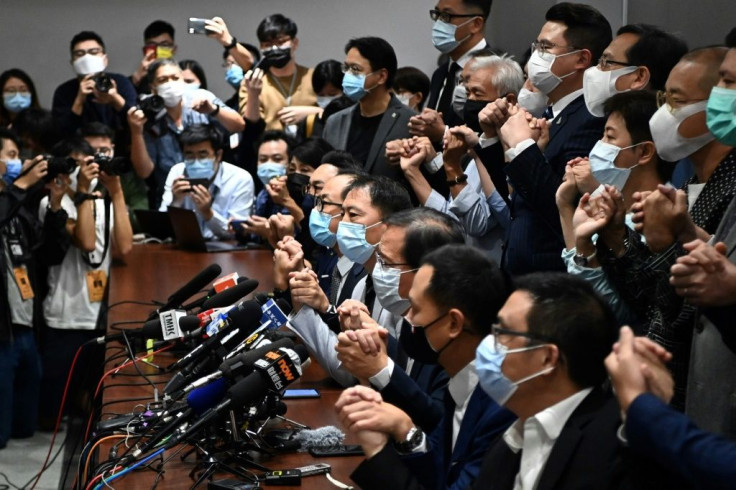
The removal of four opposition lawmakers triggered the en masse resignation of their remaining colleagues, the latest move in a deepening crackdown against Beijing's critics following last year's huge and often violent democracy protests.
"China's action is a clear breach of its international obligations under the legally binding, UN-registered Sino-British Joint Declaration," the nations said in a joint statement, reiterating individual remarks.
The foreign ministers said the latest move appeared to be part of a "concerted campaign to silence all critical voices" in the financial hub.
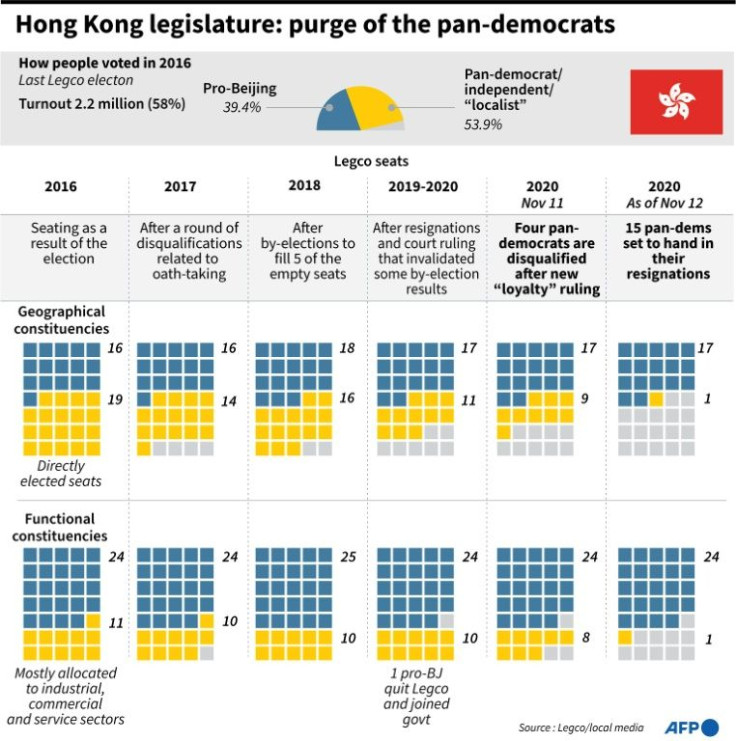
"For the sake of Hong Kong's stability and prosperity, it is essential that China and the Hong Kong authorities respect the channels for the people of Hong Kong to express their legitimate concerns and opinions," said the alliance, known collectively as the Five Eyes.
China's foreign ministry spokesman on Thursday hit back against the accusation, calling it a "blatant violation of international law" and saying "any attempt to exert pressure on China... is doomed to fail."
"No matter if they have five or ten eyes, if they dare to damage China's sovereignty, security and development interests, they should beware of being blinded," said spokesman Zhao Lijian.
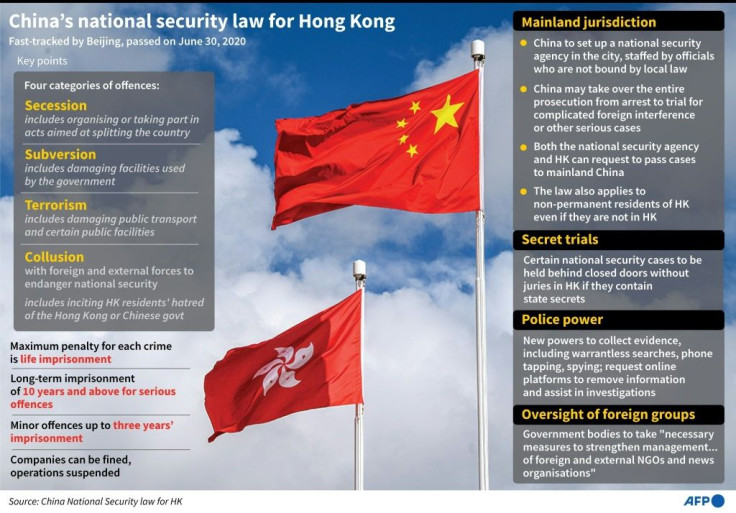
China promised to rule Hong Kong via a "One Country, Two Systems" model that would allow the city to retain key freedoms and autonomy from the authoritarian mainland until 2047.
Western allies say that agreement has been prematurely shredded by the clampdown, which has included a broad national security law that was imposed directly by Beijing in June.
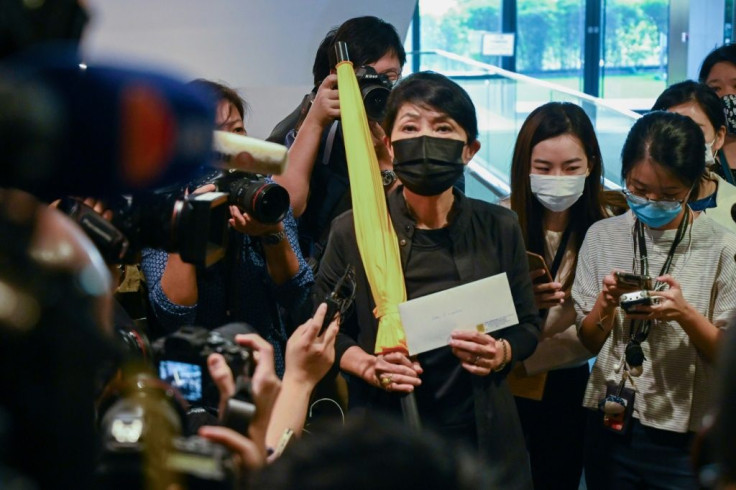
The law has since all but wiped out dissent against Chinese rule in the territory and left swathes of the population too scared to speak out, fearing being jailed or disappearing into the mainland's opaque legal system.
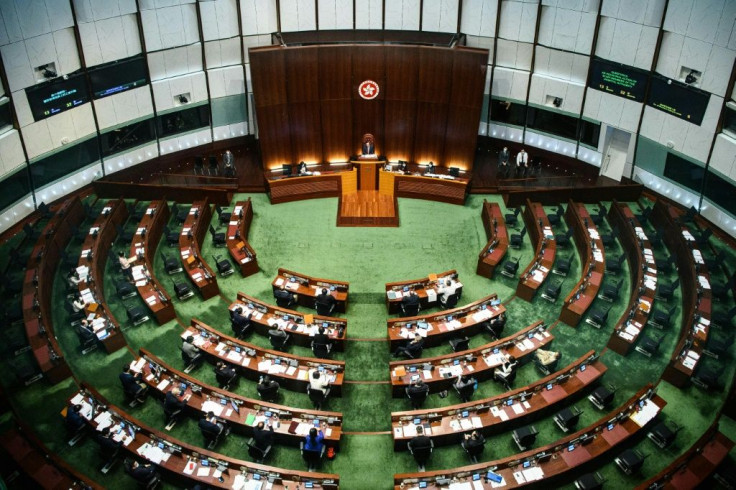
China's leaders deny breaching their pre-handover promises and say Western powers have no right to interfere in how the global trade hub is run.
The lawmaker disqualifications are the latest move by China to ramp up direct oversight of a city where growing numbers seethe against its rule.
Last week, China's parliament body issued a decree that local authorities could expel any politician deemed a threat to national security without having to go via the courts.
Minutes later, Hong Kong authorities used the new powers.
Only half the legislature's seats are elected by popular vote, a mechanism designed to ensure a permanent pro-Beijing majority.
But the subsequent solidarity resignations of the pro-democracy opposition turned the once-feisty legislature into a muted gathering of Beijing loyalists.
Police have also started to bring prosecutions against opposition lawmakers for protests in the chamber with seven charged so far this month.
Three were arrested on Wednesday for hurling foul-smelling liquid earlier this year in an attempt to halt a debate on a law criminalising insults against China's national anthem.
The trio are expected to appear in court later Thursday.
"How is this different from a police state?" Ted Hui, one of the charged lawmakers, said on Wednesday after he was bailed.
"This arrest again showed people in Hong Kong and around the world that the state is constantly suppressing all opposition voices," he added.
China has defended the removal of opposition lawmakers as "the right medicine".
In a speech earlier this week, senior Beijing official Zhang Xiaoming said only patriotic people should be allowed to serve as lawmakers.
"Patriots rule, anti-China trouble-rousers out is a political rule... Now it has also become a legal norm," he said.
© Copyright AFP {{Year}}. All rights reserved.





















